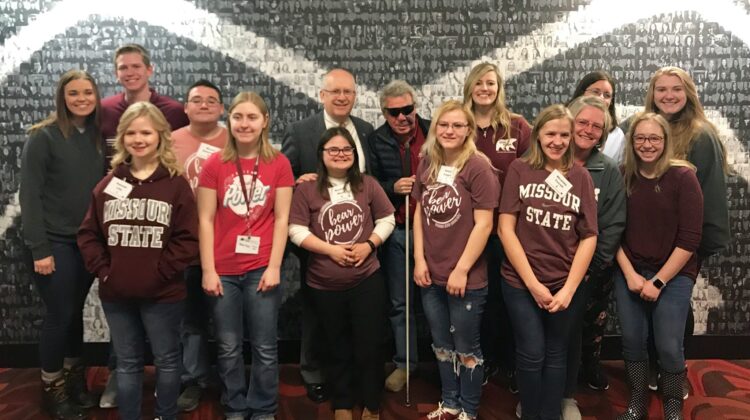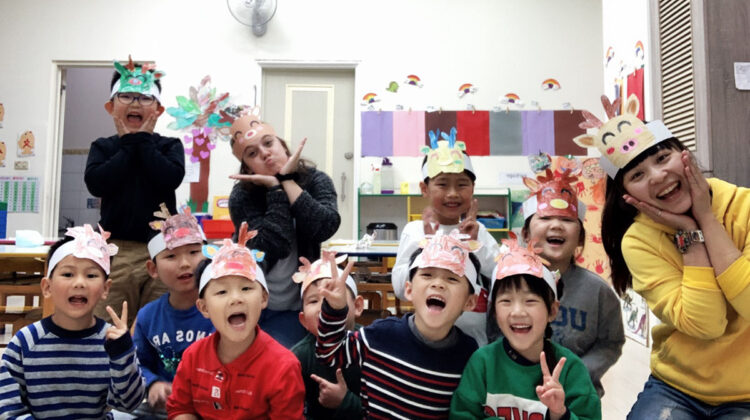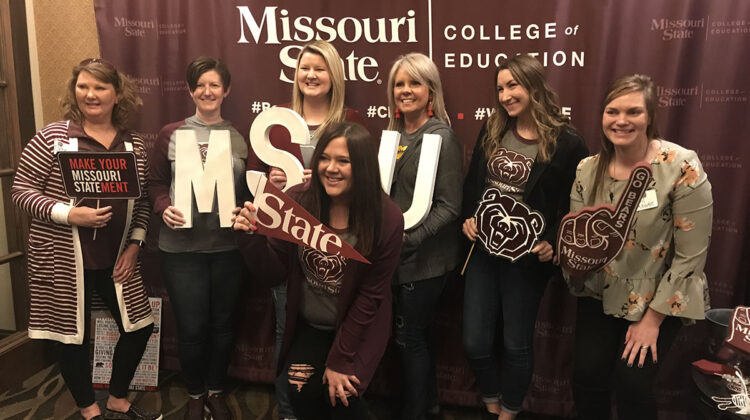Bear POWER takes up a large space in its director’s heart. Rachel Heinz has been part of the nearly three-year-old program, designed for students with intellectual disabilities, since day one.
It’s a special connection to Bear POWER, however, that makes her work feel so good. Her own son has Down syndrome and autism.
He’s the reason why she initially became involved in the program.
“I wanted to see an inclusive college program like this in our community,” Heinz says. “Initially, I started as a volunteer.”
She describes working with a team of Missouri State faculty and staff, as well as others in the community, including her own mother.
“It unfolded into a career path I was not expecting,” Heinz says. “Now, it’s my dream job.”
It’s easy to be passionate about the program, she adds, when Bear POWER’s positive impact is so obvious in its students and others on campus.
“Bear POWER is opening doors to new possibilities for many students and their families,” Heinz says.
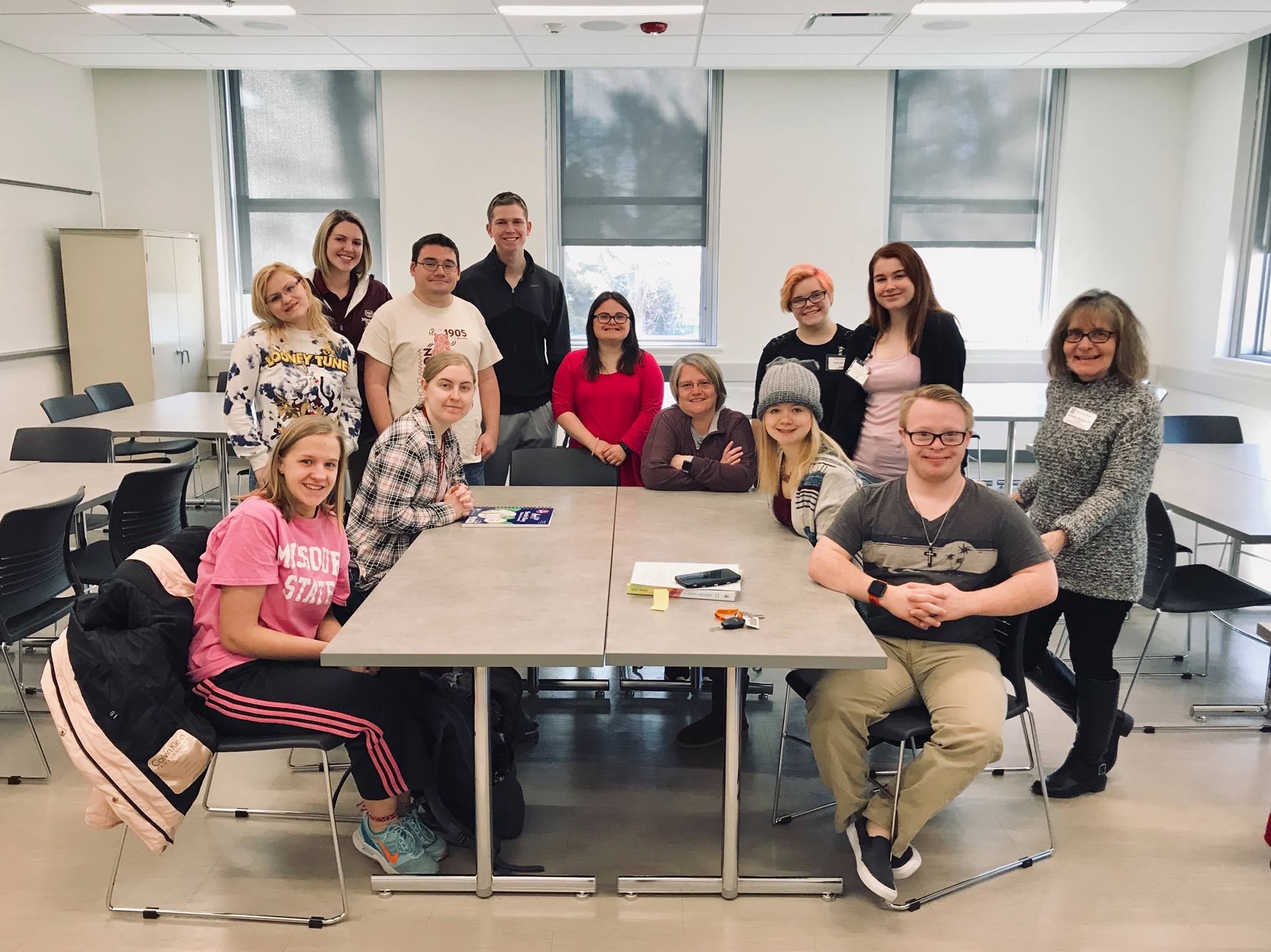
Intern Support
Heinz has watched Bear POWER grow mightier by the day. A recent grant by State Farm is aiding its development.
“It will support the Bear POWER program’s internship component,” Heinz says.
More specifically, the program will soon subcontract an employee who will support Bear POWER students in their internships and collect data to improve the program.
Bear POWER’s first cohort of students began their internships last fall.
“We’re really excited. The internships are something we’re building on each semester,” Heinz says. “We’re partnering with a lot of departments on campus.”
Heinz said several students are currently working at Missouri State’s citizenship and service-learning office and the child development center. Others have internships at businesses like Springfield Little Theater, Twin Oaks Country Club and Golf Course, and Bass Pro Shops.
“It’s good for our students, because they’re getting hands-on experience in their area of interest while attending college classes,” Heinz explains. Bear POWER students also live on campus.
The program’s second cohort began earlier this month.
“Everybody’s doing really well,” Heinz says.
Ambassadors for Growth
Heinz believes Bear POWER Ambassadors are part of what’s led to so much success in the program.
The ambassadors are traditional MSU students who provide at least two hours of direct support each week to Bear POWER students.
What might that support look like? It’s helping Bear POWER students fill in their planners and improve their social skills. The ambassadors also often take them to lunch.
“We have over 40 ambassadors, and that number is growing each semester,” Heinz says. “We plan to start a waiting list, because we have many students who are interested.”
A lot of those students are female, Heinz says, so the program has visited classrooms, as well as fraternities, to find more male volunteers. Graduate students can volunteer, too.
Heinz says many Bear POWER Ambassadors have expressed the program is one of their favorite things they have been involved in at Missouri State. One of them is junior Julianna Vogt.
“Bear POWER students inspire me every single day with their positive attitudes,” Vogt says. “I have learned so much from them.”
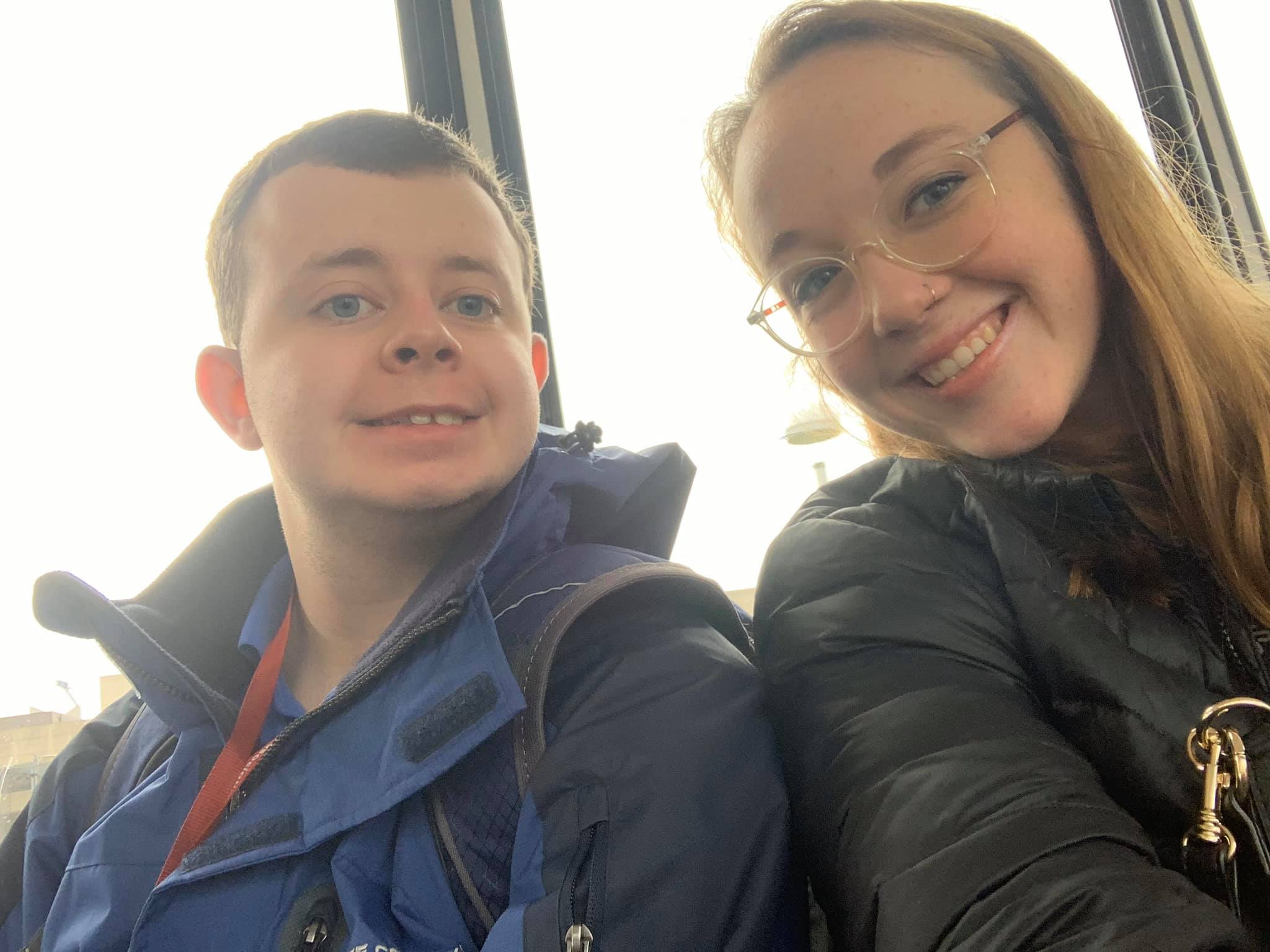
Trailblazing Bears
Heinz says there are 270 schools that have a similar program to Bear POWER. That number may seem like a lot, but it’s only 6% of colleges and universities across the country.
“We need to encourage other universities to start programs for students with intellectual disabilities,” Heinz says. “Students needs choices. Every university and program will look different, and they need to make the right choice for themselves and their family.”
Bear POWER students have come from as far as Arkansas and Kansas, though families from all over the country have shown interest. Bear POWER is seemingly a trailblazer in offering students with disabilities the chance to be part of higher education.
“We’re the fourth program like this in Missouri, and there are more programs that will launch in the next couple of years,” Heinz says. “We’ve been able to share information and resources through a regional alliance we co-founded.”
The alliance is known as Midwest Inclusive Post Secondary Alliance, or MIPSA.
“The collaboration with existing and new programs is very exciting,” Heinz says.
Equal Education
As for Heinz’s son, he loves Missouri State. He attends countless basketball games and knows the fight song at heart.
“He listens to it all the time at home,” Heinz laughs.
Whether he’ll be a Bear someday is up to him, Heinz says. She hopes by the time he graduates high school, he and students like him will have more options.
Heinz says students like her son deserve education past high school as much as everyone else.
“If students with intellectual disabilities want to pursue a higher education, they should have the chance to do that.”


